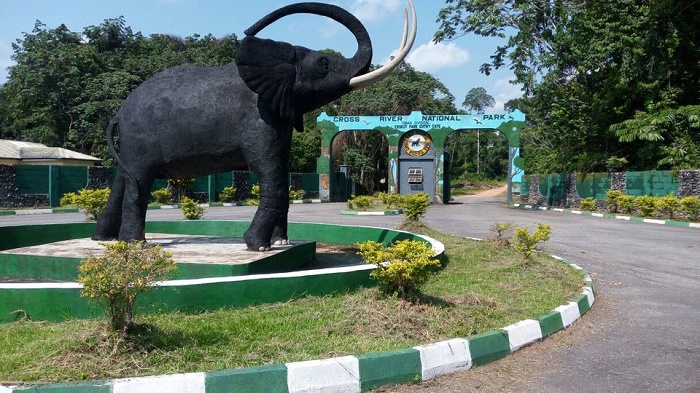Strengthening Nigeria’s wildlife protection laws is essential for conserving biodiversity and ensuring sustainable development.
Nigerian authorities must urgently prioritise reinforcing wildlife protection laws to safeguard the country’s rich biodiversity, including its animals, plants, and ecosystems, from the escalating threats of trafficking and habitat destruction.

Giving strength to these laws is imperative, as existing federal and state regulations have been ineffective in holding wildlife traffickers and poachers accountable despite criminalising the killing and trading of protected species.
Existing laws, such as the Endangered Species (Control of International Trade and Traffic) Act, of 1985, may lack comprehensive wildlife protection and enforcement provisions. Inadequate penalties for wildlife crimes fail to deter poaching and illegal trade.
In addition, corruption within law enforcement agencies hampers the effective implementation of wildlife protection laws. For instance, despite significant seizures, including Nigeria’s interception of 9.5 metric tons of pangolin scales worth $25.9 million in 2020 and a record-breaking 9.4 tonnes in 2024, the country remains a global hub for wildlife trafficking.
Investigations reveal systemic issues, including poor prosecution rates and lenient penalties, such as fines as low as N100,000 ($64) for traffickers of endangered species. These challenges undermine conservation efforts and Nigeria’s international commitments.
At the federal level, Nigeria’s wildlife laws lack the stringent measures seen in other regions, such as East and Southern Africa. For example, the practice of “compounding”, where offenders pay fines instead of facing prosecution, creates loopholes that traffickers exploit.
Although agencies like NESREA and NCS cite resource constraints as a barrier to effective enforcement, strengthening legal frameworks and securing adequate funding could mitigate these challenges. Apart from these, insufficient training and resources for enforcement officers also lead to poor monitoring and enforcement of existing regulations.
Deforestation, urbanisation, and agricultural expansion destroy habitats, threatening wildlife populations. Inadequate land-use planning and enforcement of zoning laws also exacerbate habitat loss.
Furthermore, local communities’ lack of involvement in wildlife conservation efforts can lead to conflicts and non-compliance with laws.
Communities often depend on wildlife for their livelihoods, which can lead to poaching and illegal trade if alternative livelihoods are not provided. There’s also the factor of insufficient funding for wildlife conservation programmes and enforcement activities that limit the effectiveness of existing laws.
Many conservation initiatives rely on external financing, which can be inconsistent. To further strengthen the wildlife protection laws in a bid to safeguard the country’s rich biodiversity, the following solutions come in handy: A bill is underway at the National House of Assembly to review and amend existing wildlife protection laws, including stricter poaching and illegal trade penalties. The proposed Wildlife Protection Bill, championed by Terseer Ugbor, the Deputy Chairman of the House Committee on Environment, aims to address critical gaps in Nigeria’s conservation laws by introducing stricter penalties, empowering courts to expedite cases, and expanding investigative powers to include financial tracking.
If passed, it would disrupt illegal wildlife trade networks and align Nigeria’s policies with international best practices.
“Wildlife trafficking is not just a crime against nature; it is a threat to our planet’s delicate balance. This Bill ensures we act decisively to protect and preserve these irreplaceable components of our natural heritage, recognizing our responsibility to future generations,” said Ugbor on the Bill’s passage.
“This legislation is not just about what happens within these legislative walls; it’s about a collective effort. This bill is a beacon of hope in escalating environmental challenges. It reflects our commitment to a sustainable future where humans and wildlife coexist harmoniously. Let us pass this legislation for the sake of our planet, for the generations to come, and for the preservation of Nigeria’s natural heritage.”
Experts say the bill’s success will depend on robust implementation and inter-agency cooperation, especially with agencies like the Nigerian Customs Service (NCS) and the National Environment Standards and Regulations Enforcement Agency (NESREA).
There’s also the need to dedicate resources to these wildlife law enforcement agencies to enhance their capacity to monitor and enforce laws.
Additionally, the necessary stakeholders must implement training programmes for enforcement officers to improve their skills in wildlife protection.
Community engagement is also crucial. These communities are often the first point of contact for wildlife criminal syndicates to recruit poachers who perpetuate wildlife crimes. As a result, local communities closer to national parks and game reserves should be engaged in conservation efforts by providing alternative livelihoods and involving them in decision-making processes.
It is key to establish community-based wildlife management programmes that empower locals to protect their natural resources.
Additionally, there’s a need to increase educational campaigns to raise awareness about the importance of wildlife conservation and the legal consequences of wildlife crimes. The majority of the citizenry is ignorant about the law, including the endangered species in Nigeria, and why they must be protected at all costs.
However, promoting the value of biodiversity and its importance to nature and the public will go a long way in encouraging public support for wildlife protection.
Beyond awareness, the government should establish a robust monitoring system to track wildlife populations and assess the effectiveness of conservation laws. Invest in research to understand wildlife conservation’s ecological and economic impacts and inform policy decisions.
In conclusion, strengthening Nigeria’s wildlife protection laws requires a multifaceted approach that addresses legal, social, and economic challenges. By reforming laws, enhancing enforcement, engaging communities, and fostering international cooperation, Nigeria can make significant strides in wildlife conservation and ensure the protection of its rich biodiversity for future generations.
By Ajibola Adedoye
This article (“Strengthening Nigeria’s wildlife protection laws: A critical analysis of challenges and solutions”) was funded by a grant from the United States Department of State (via Wild Africa). The opinions, findings, and conclusions stated herein are those of the author(s) and do notnecessarily reflect those of the United States Department of State
